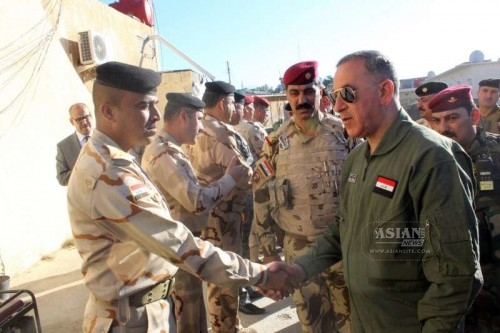
Iraqi troops launched a military operation in order to regain control of the city of Tikrit and liberate it from the Islamic State (IS) terrorist group, Iraqi security sources told Efe news agency.
Tikrit has been under the jihadi group’s control since June and is the capital of the strategic Salahuddin province, and so has remained a critical location for Iraqi authorities, who made attempts on recapturing it earlier in the month.
Control of Salahuddin is essential for a viable crackdown on IS extremists in Mosul, Iraq’s second largest city and the main stronghold of the jihadis.
During Tuesday’s operation, the national forces, backed by Shia militias and tribal fighters, successfully secured three points of access to Tikrit to drive the IS jihadis out.
The troops, with the support of the Iraqi air force and army aviation, entered Tikrit from the southern area of Shishin, western area of al-Diyum and northern area of al-Qadesiya, the source said, while other security forces have been deployed to the eastern front to prevent IS fighters from escaping.
The jihadis, on the other hand, have baited traps on all entrances to the city, as well as governmental and residential buildings, according to the source, and have also parked several car-bombs in the city’s streets to hinder the Iraqi forces’ advance.
Iraqi national forces launched the operation in Tikrit on the heels of liberating the nearby town of al-Alam on Monday, after heavy clashes with IS jihadis.
In addition to al-Alam, located 16 km east of Tikrit, on Monday the army was able to retake control over the towns of al-Buhiazaa, al-Aali and al-Debsa.
On Monday, Gen. Martin Dempsey, chairman of the US Joint Chiefs of Staff, arrived in Baghdad on an official visit to discuss the military operations against the IS with Iraqi officials, a spokesperson with Iraqi defence ministry told Efe.
Dempsey, whose country has spearheaded the international coalition airstrikes against the IS, met with Iraqi Prime Minister Haider al-Abadi, also commander-in-chief of the Iraqi armed forces, in addition to the Iraqi Defense Minister Khalid al-Obeidi, and other Iraqi leaders.